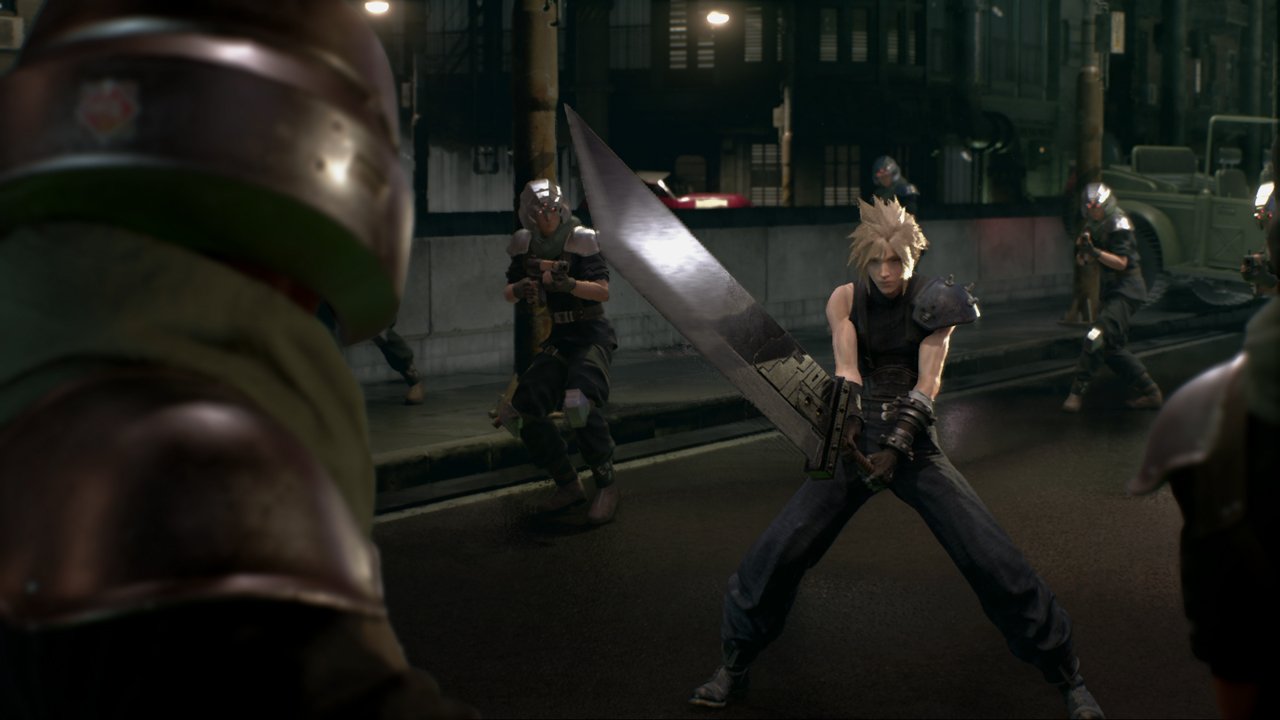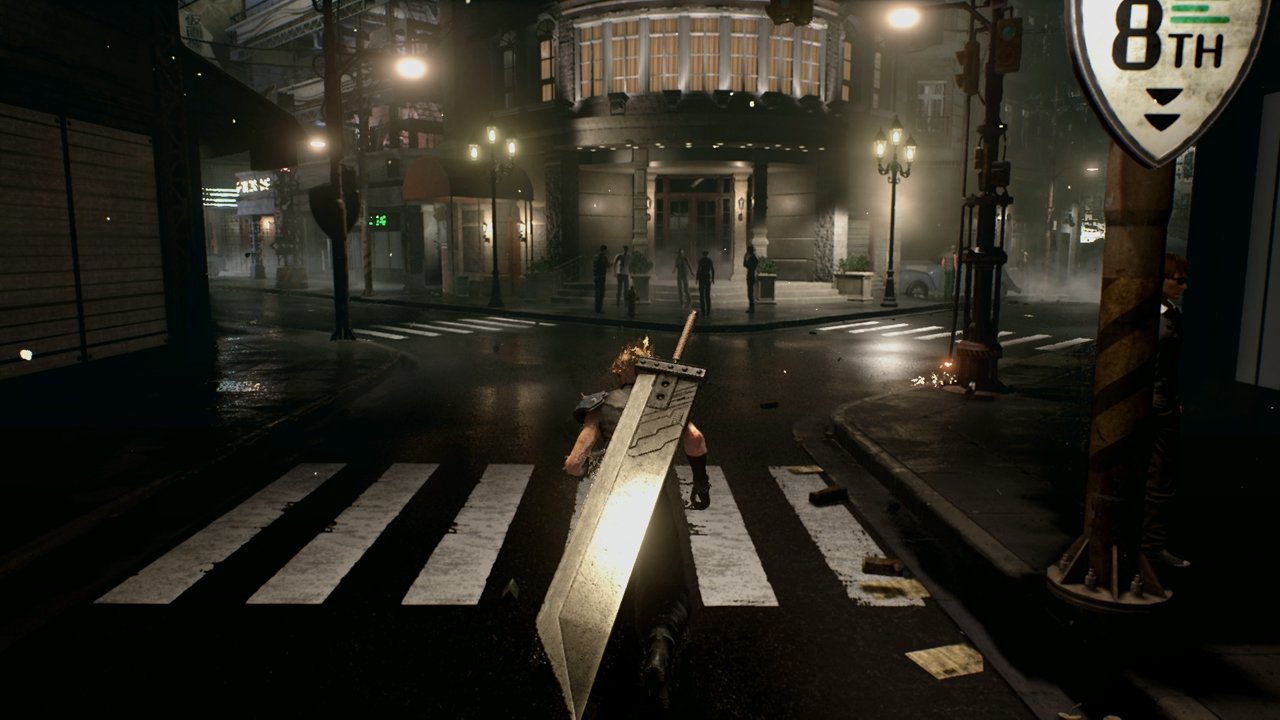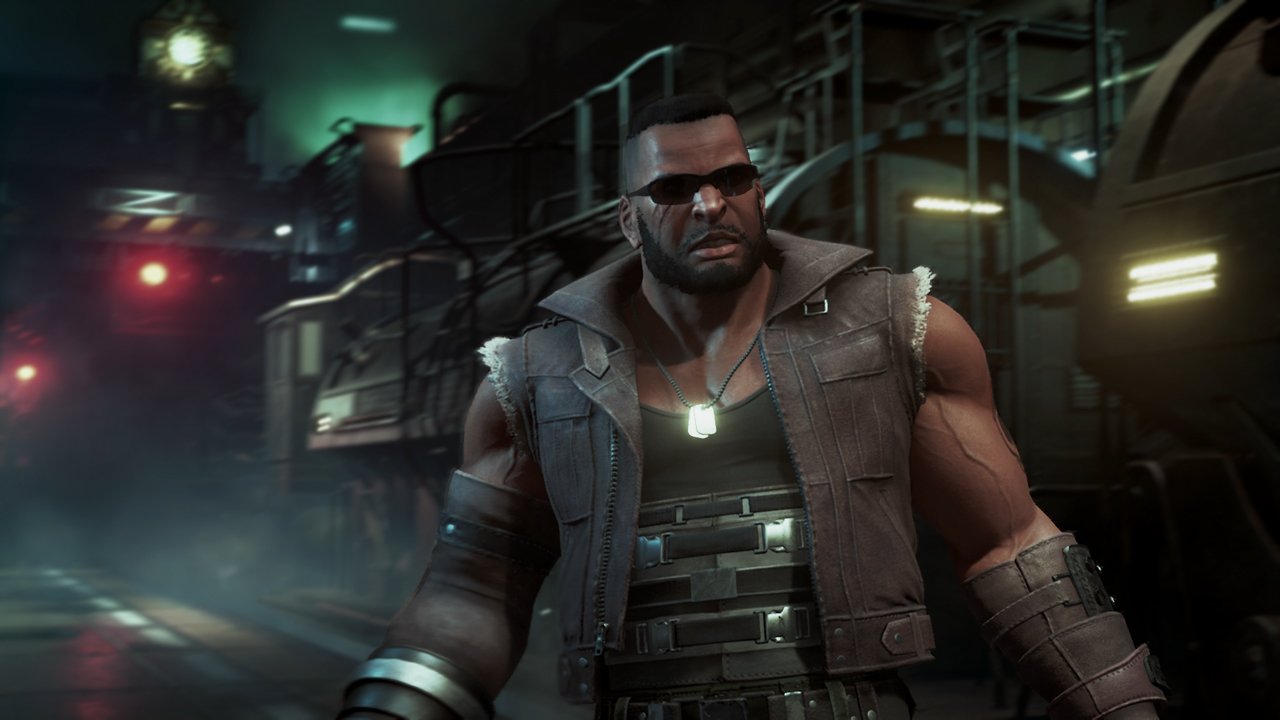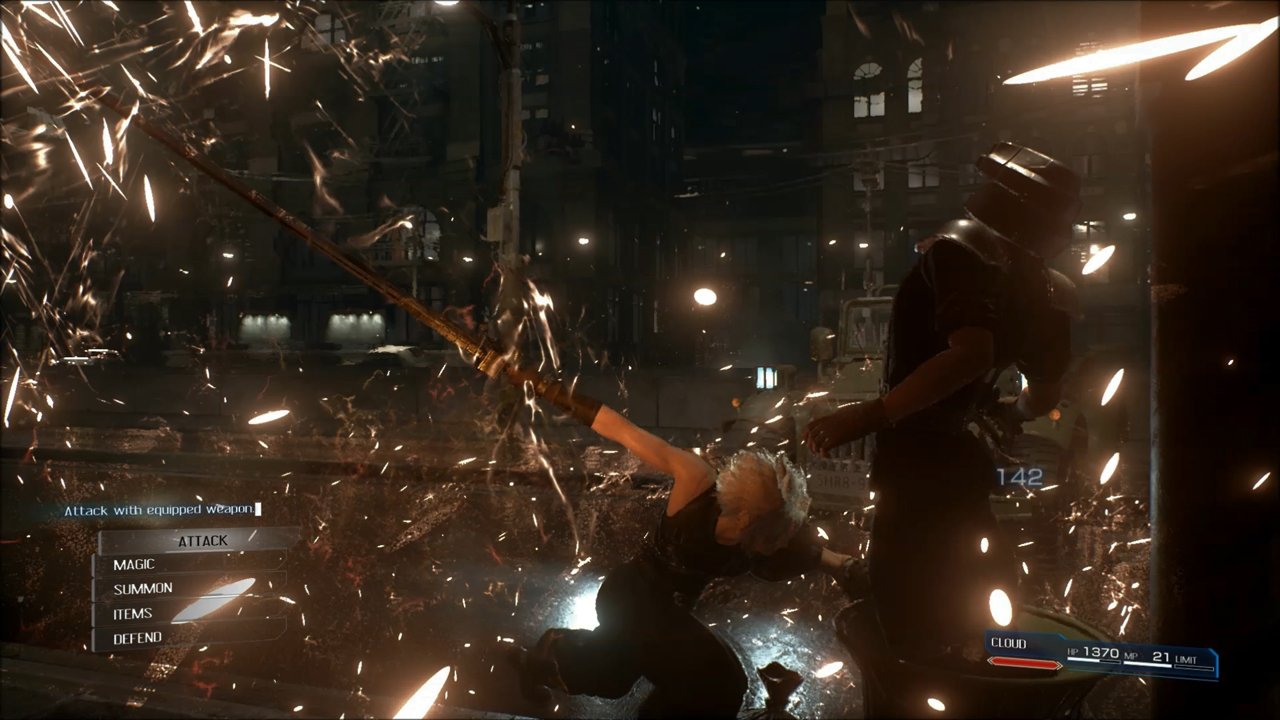Going episodic is the only option for the Final Fantasy 7 remake
Final Fantasy 7 Remake fans eagerly awaiting the next-gen adaptation of their favorite game have gone through a variety of emotions over the years. Teased with a tech demo that showed off the potential of what Final Fantasy 7 could look like on modern hardware, many were disappointed that developer Square Enix seemed noncommittal with a project believed to be a sure success. Years later, producer Shinji Hashimoto walked on stage at 2014's PSX event to troll everyone, announcing Final Fantasy 7's arrival on PS4 as a port of the original. And now that Square has finally announced that the Final Fantasy 7 Remake is indeed real, fans have become cautiously optimistic, hoping the publisher doesn't screw it up - especially now that we've learned that the remake will be a "multi-part series".
For many, the phrase "multi-part series" sounds like code for "episodic": rather than releasing one massive 100+ hour RPG, the remake will be split up into much smaller chunks. Square has said that each entry will offer "its own unique experience", though what that means is anyone's guess at this point. Rather than imagining this as a point against the upcoming remake, I'd like to think of this as a boon - that going episodic isn't just the only option for Final Fantasy 7, it's been in the game's DNA for the past ten years.

If Square Enix is able to turn Final Fantasy 7 into a "multi-part series", it allows the publisher to really dig into the game's mythology, its environments, and focus on the experience at a micro-level without sacrificing those special moments that make Final Fantasy 7 such a unique game, or forcing fans to wait ten years to play it. And for my money, I'd rather have a smaller initial experience to play in a year or two that ties into a larger whole, than a single truncated version of Final Fantasy 7 that we get six years from now.
Let's not forget that Final Fantasy 7 was in the planning stages in 1994, a full three years before its eventual release in 1997, and went through three different platform changes. It was first envisioned as a Super Nintendo game, then an N64 game, then finally it found a home with PlayStation, where the CD-ROM afforded developers more space for 3D textures and CGI videos. Three years seems like no time at all when compared to the amount of time it's taken Square to finish Final Fantasy 15. As the remake is effectively rebuilding Final Fantasy 7 from the ground up, we're looking at a minimum of two-to-three years before we're able to play it ourselves - potentially much longer if the remake maintains or increases the scale of the project. Considering that fans have been frothing at the mouth since that initial tech demo back in 2005, I highly doubt Square Enix wants to get caught up in another lengthy development cycle, and making it episodic would help alleviate some of that stress.

Final Fantasy 7 is a big game, even for the era it was developed in, but limitations of the hardware forced our own imaginations to fill in a lot of the gaps. Look at Midgar: it felt huge back in 1997, as that opening cutscene pans over the gargantuan metropolis, quickly zooming in toward ground level. The people who live in this massive two-level pizza city feel like ants in comparison. But replaying it now shows just how small it really is, as this whole section of the game can be blown through in a handful of hours. Thanks to some creative use of pre-rendered backgrounds, the developers can funnel you to your destination while implying that the bustling cyberpunk dystopia is much bigger than it actually is.
Remake director Tetsuya Nomura has talked about bringing "dramatic changes" to the Final Fantasy 7 experience, and the trailer shown at the 2015 PlayStation Experience provides a lot of valuable hints to those changes. Combat looks vastly overhauled, environments appear to be far more open, scenes have a lot more going on in them than merely acting as static backgrounds - other than the core story and characters, the Final Fantasy 7 Remake is, essentially, a completely different game. With full 3D environments, you can't just draw each screen at a certain camera angle that naturally creates invisible walls - you have to build it out and fill in those gaps previously left to our imagination with streets you can actually explore. And unless you're making sweeping cuts to the overall narrative to give more detail to specific areas, you're essentially making a sprawling, 100+ hour JRPG even larger.

And that's just Midgar. There's Nibelheim, Rocket Town, Gold Saucer, Wutai, and all of the moments that happen at each of these places. For these locations to feel like actual cities and not just the handful of houses like they were in the original, they all need to be rebuilt from the ground up, too. Any cut the developers would have to make to fit the entirety of the remake at the scale it's calling for into a single game would be one cut too many to fans, regardless of development realities. But going episodic potentially allows Square to maintain Final Fantasy 7's more granular but no less memorable events while maintaining the bigger picture.
Weekly digests, tales from the communities you love, and more
Going episodic wouldn't even be that much of a stretch for Final Fantasy 7, as it's been dabbling in side-stories for years. Rather than releasing the remake fans have been clamoring for, the publisher has obliged them by fleshing out its mythology through a variety of properties. Referred to as 'Compilation of Final Fantasy 7' by its creators, the five year span between 2004 and 2009 saw the release of games and movies that expanded upon the core story found in the PlayStation classic. There was Advent Children, a beautiful-but-convoluted CGI movie sequel; Dirge of Cerberus, a third-person shooter featuring J-Pop vampire Vincent Valentine; and Crisis Core, a prequel revolving around Shinra SOLDIER Zack and the fated mission that sets the stage for Final Fantasy 7.

In a way, Compilation of Final Fantasy 7 reminds me of a more scattershot, less successful version of what Disney's currently doing with the Marvel Cinematic Universe. Each of the entries in the Compilation offers a complete narrative arc, filling in gaps left by the main game's story while introducing brand new characters and elements of their own. Final Fantasy 7 was already a pretty huge game, but each of these additional stories make this world feel much bigger and more lived-in than it originally was. Plus, each entry took on a different genre or medium that played to the core strengths of its characters and the story Square wanted to tell. While the quality of each entry may not be consistent, it was still great to learn more about Zack's backstory beyond what was shown in FF7 proper, or trying to figure out the story hidden inside Advent Children's 101-minute-long anime fistfight.
That's really what I want to see in the Final Fantasy 7 remake: more expansion, more detail, more life infused into each location. If the work that's going into it is going to rebuild it from the ground up (and based on the high-fidelity visuals and more action-oriented combat featured in the latest trailer, that appears to be what's going on), I don't want to just play the same exact game with the same exact story beats with shinier graphics. I want to see more of the world that the PlayStation game merely hinted at. I want it to go beyond the story we already know, to explore more of Cloud's backstory, to give us a deeper look into what makes Sephiroth tick, to give Aeris a personality (any kind at all, really). For the Final Fantasy 7 Remake to be more than a simple graphical upgrade, for it to be able to explore this fascinating world full of rideable dolphins, spaceships, and theme parks with any amount of depth and come out within our lifetimes, it has to be episodic.
Could this be an opportunity for Square to create an episodic game out of a title that doesn't need to be episodic? Sure. But this could also be an opportunity for Square to not only give fans the Final Fantasy 7 remake they've been asking for, but to give them more Final Fantasy 7 than they could ever imagine. As a fan of this world and its characters, that sounds like a pretty good deal to me.



